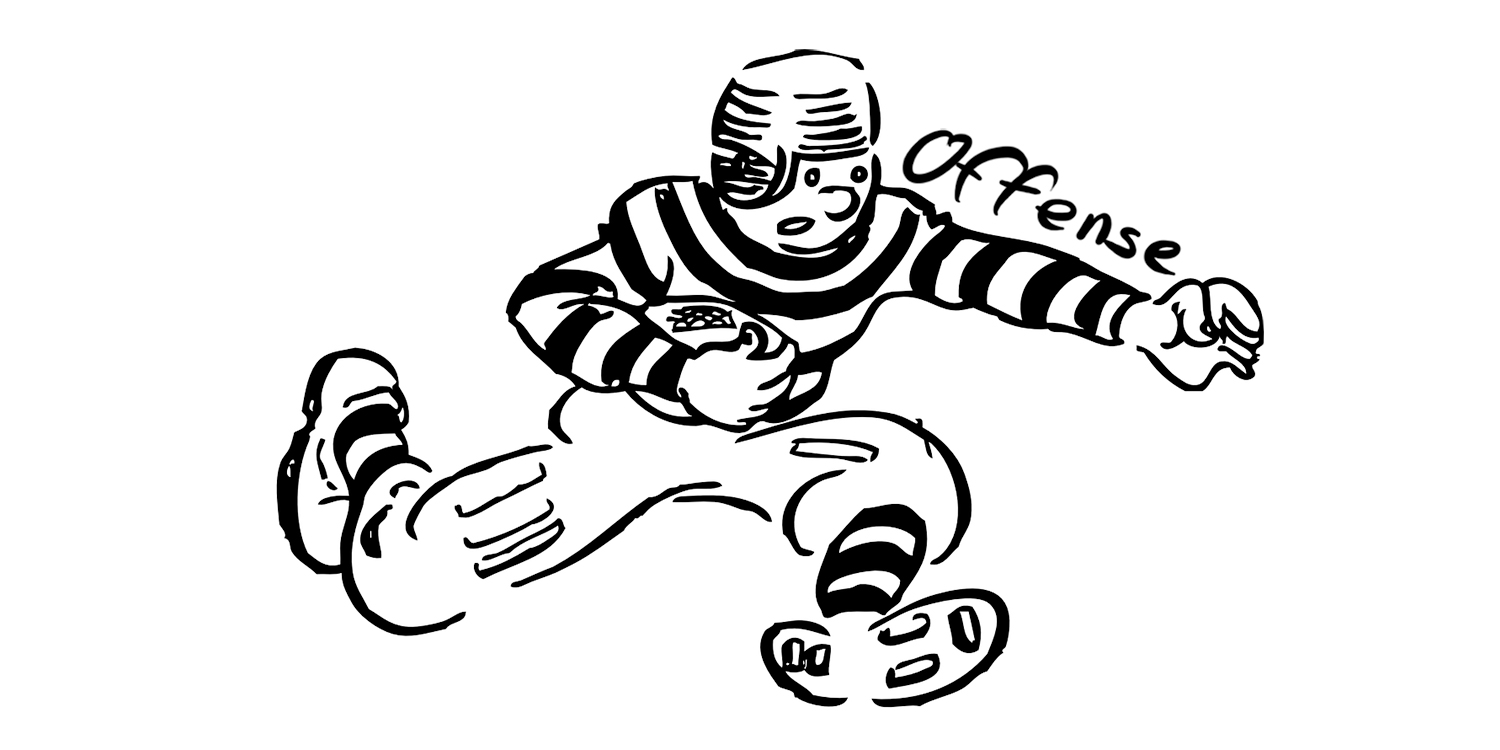A few years ago, I walked into a wine bar on the Upper West Side of Manhattan and pulled up a stool next to a stranger. We got to talking, and I learned that he was in town from New England to interview for a C-suite role that had unexpectedly presented itself. After telling me his story, he asked about mine, and I shared that I was trying to sort out a career transition of my own. As he slid his credit card back into his wallet and walked away, he offered this: “Sometimes you have to go on the offensive.”
That advice made me reflect on how often I was taking a defensive stance in my job search. As we do in many situations, we tend to prepare for job interviews by focusing outside of ourselves:
- “Who will be doing the interviewing?”
- “What will they be like?”
- “What skills will they be looking for?”
- “What will they ask?”
These questions have something in common: They put us in a defensive position. And while I wholly recommend starting in this place, we don’t set ourselves up for the win when we stop here.
What does it look like to go on the offensive in the interview process? Here are three things you can do:
1. Follow your own playbook to highlight your talents.
You have no control over the questions that are posed during an interview. The interviewer is on offense, and you are downfield hoping to intercept the pass and score. So why not create your own playbook: one filled with plays that you’ve practiced dozens of times and from which you’ve experienced great success.
Here’s how: Identify two to three core strengths you want your interviewer to know about you and grab every opportunity to communicate them.
Are you the person that creates order from chaos? Do you bring feuding teams into cohesion? Maybe you are the fixer who rights the train before it veers off the tracks.
Your playbook allows you to keep your core strengths in the forefront of your mind, so that you can showcase them as you field whatever questions come your way. Be creative about weaving them into your answers and reinforce them as often as you can because repetition helps with retention. What you’ve done will be conveyed, but WHO YOU ARE will shine through.
2. Ask strategic questions for extra points.
The president of a start-up once told me that he evaluates candidates based more on the questions that they ask than on the answers that they give. We generally think of questions as a way to acquire information, but they also communicate information.
Our questions are another opportunity to show who we are, and how we think. If one of your core strengths is your laser-like focus on internal customer service, you might ask: “In my current role, I was able to roll out solutions to the customer service team that increased their efficiency by 30%. The only way I was able to achieve that kind of success was because the management team was aligned with my goal. How committed is leadership to supporting the needs of internal customers?”
See how that works? You didn’t have to say that you care about internal customer service. You did something even more compelling: You demonstrated it. And now that you communicated something important about yourself as a candidate, you can learn something about your prospective employer from their answer.
3. Get the home-field advantage feeling even when you are off of your turf.
There is so much to do to prepare for a job interview. We do our research about the organization and their products and services. We gather information about the people that will interview us. We review our work history, create succinct success stories, and transform our work history into a concise and compelling short narrative. We might even get a haircut or purchase a new outfit.
But what can we do to gain the feeling of having the home-field advantage—creating some comfort in the face of a highly stressful situation? The answers are different for different people, but here are some ideas:
- Do a drive-by, so that you know exactly how to get to the office.
- Be sure to have your favorite drink or mints with you.
- Meditate, exercise, or go for a walk before your appointment.
- Look at a picture of your kids, listen to your favorite song, or watch your favorite movie clip.
- Call your husband, your girlfriend, your mom, or your best friend.
- Read your best performance review or your fifth-grade report card, if that reminds you of your greatness.
The point is to pause and ask yourself, “What can I do to reduce my anxiety and calm my nerves, so I can show my best self?” Once you figure it out, then just do it.
Interviewing is stressful business. We are being evaluated by someone who has the power to give us something that we want or to deny it. Under those circumstances, it’s only natural that we ready our defenses, but it’s even more important that we show our strengths and our unique blend of superpowers, and that’s hard to do when we are feeling defensive. That’s why there is no better time to adopt the advice given to me by a wise stranger and go on the offensive. You’ve got this!


